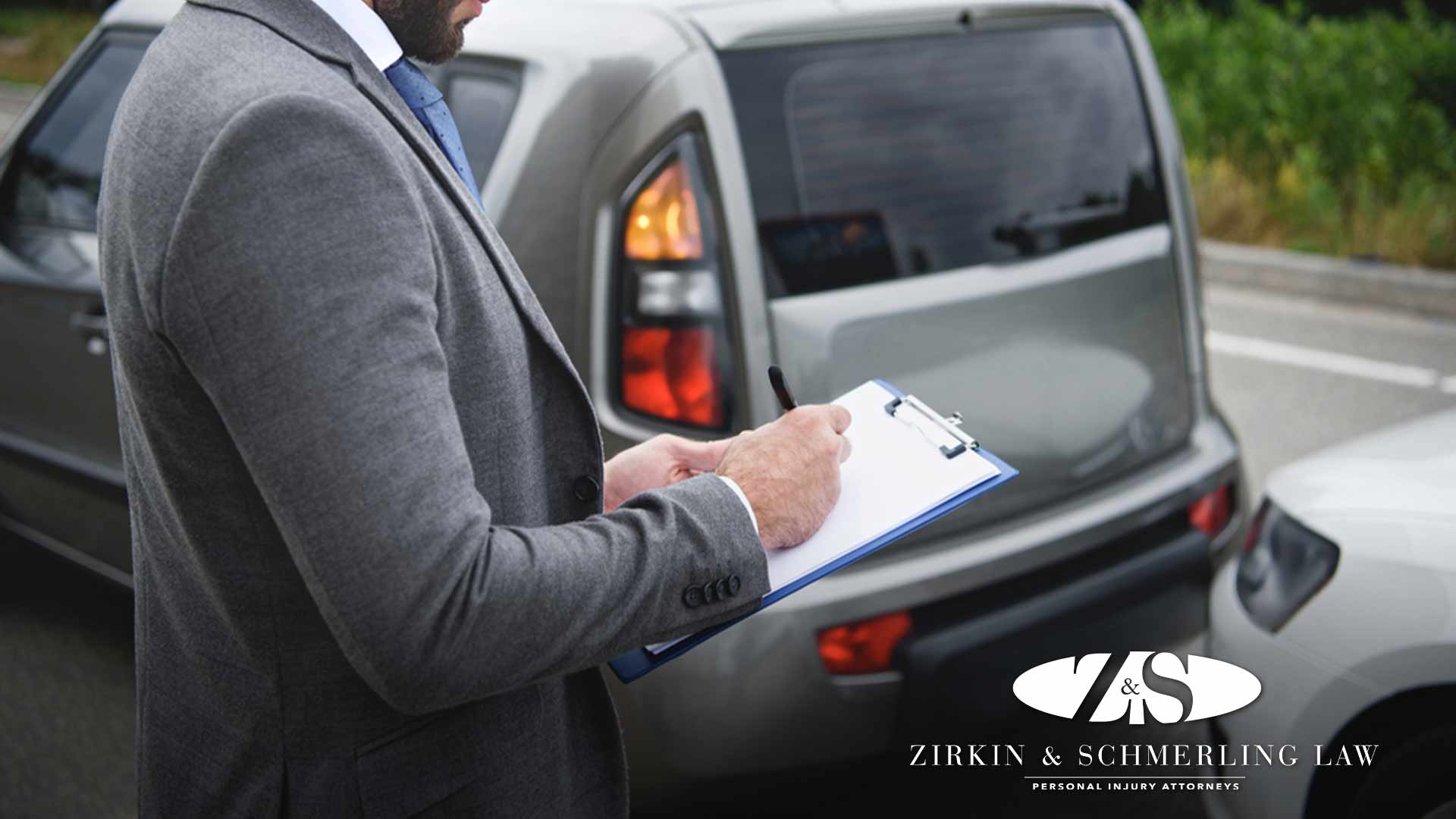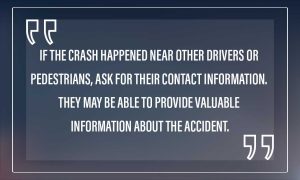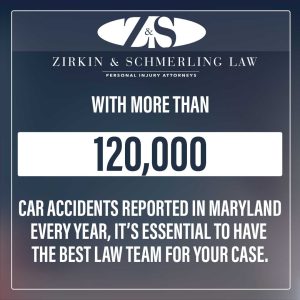
Car accidents are stressful enough–from the damage to your car to potential injuries, and the stress of making a police report, dealing with insurance companies, and trying to ensure that you are properly compensated by the other driver. However, when the at-fault driver lies to their insurance, the truth can be hard to prove and accidents can quickly become even more stressful. Their lie can lead to insurance issues for receiving compensation, and may even make it so insurance companies deem you liable for the accident.
Because of this, it’s essential to know what to do if an at-fault driver lies after a crash. Read on to learn more.
What Should You Do After an Accident?
While many at-fault drivers will not lie to their insurance companies about how a crash happened, you should still approach accidents from the perspective of gaining the most possible evidence to protect yourself.
Here are some things you should do following any accidents, especially if you suspect that another driver is lying about being at fault for the crash:
Gather Evidence
Take photos of the cars involved in the crash, the damage to the vehicles, any additional signs of damage (such as broken glass on the ground or pieces of the vehicle that are separated from the vehicle), or skid marks.

Additionally, take photos of the scene where the accident happened. If you were at a stoplight where another driver failed to yield, take photos of the stopping areas and any signage around where the accident occurred.
Talk to Witnesses

If the crash happened near other drivers or pedestrians, ask for their contact information. They may be able to provide valuable information about the accident, or later support your version of the wreck if the other driver lies about what happened.
Additionally, if there were any businesses nearby, ask if they have security cameras. It’s important to note that businesses do not have to give security footage to people or an insurance company. The police or your lawyer will likely have more luck.
File a Police Report
Any time you have a car accident, call the police. The police officer will be able to collect evidence, talk to witnesses, and file a police report at the scene. This report can later be used as evidence for your insurance claim, or in court if your case goes that far. If the at-fault driver is suspected of distracted driving or another traffic violation, they could face penalties in addition to the financial consequences of their actions. These police reports of the car accident will likely be obtained by the insurance company of the other driver as well to determine fault.
Additionally, make sure that you describe the accident accurately to the law enforcement officer, but do not admit fault or make guesses about what may have caused the accident. Taking even partial blame can lead someone to draw the wrong conclusion and cause issues later when an adjuster is assessing who is at fault.
Understand Local Laws
Remember that in Maryland, if you are found even 1% at fault for an accident it may result in you being ineligible for compensation for damages–this includes damage to your vehicle, as well as any personal injury you may have incurred.
Seek Medical Attention
If you have been injured in the collision, seek a medical practitioner so that any injuries are documented.
Remember that not all car accident injuries are immediately visible or painful–you can do internal damage to bones, muscles, and organs, but not hurt or see this damage for days. If the accident was at all severe, it doesn’t matter if you “feel fine,” see a doctor.
What Happens if an At-Fault Driver Lies?
A policyholder’s statement is one of the biggest factors in how an insurance company determines settlements and liability. However, if this conflicts with another statement to the insurance company, then evidence and witness statements will also play a part in making a final determination. A driver lying in his or her story can have many ramifications and may even result in insurance premiums or insurance rates being raised due to the auto accident.
Unfortunately, without corroborating evidence or witnesses, conflicting statements can sometimes result in the claim being denied and the company refusing to pay. It’s essential to do everything you can to ensure that your version of the car accident is corroborated if the other driver is lying.
How Can an Accident Lawyer Help?
An accident lawyer can help your claim and protect you in many key ways:
Gathering Evidence
Because of the stress and shock of a car crash, you may not be at your best afterward. A personal injury lawyer can go back to the scene, gather evidence, check for witnesses, and ensure that no stone is left unturned.
They may also have a better chance of gathering security camera footage of the scene from nearby businesses and can gather witness statements.
Talking with Police
In addition to your initial verbal or written statement, you may have to work with the police to get a police report, find additional witnesses, or talk about evidence. Your lawyer can happily assist you in this area.
Dealing with Insurance Adjusters and the Insurance Company
Talking to insurance adjusters can be a frustrating experience. Your lawyer can speak to the insurance company of the other driver in your stead.
Filing Paperwork
Your lawyer can help you file paperwork, or forms for requesting the accident report or medical reports, to ensure that it is done correctly and efficiently.
Representing You in Court
If your case goes to court, your lawyer will represent you there. Having a lawyer is more likely to result in you receiving fair compensation.
Remember when choosing an attorney to represent you, look for a law team that has years of experience and a strong reputation in your type of case. Finding a car accident attorney is important for car accidents as their expertise will be invaluable when it comes to representing you and helping to uncover a lie by the other party.
Can You Sue an At-Fault Driver Who Has Lied?
The short answer is yes, you can sue at-fault drivers for lying about a car accident. Filing a lawsuit against the person is one way of trying to receive monetary compensation from the at-fault drivers in a car accident. When compensation is paid, it can cover vehicle damage or other damages if insurance has denied a claim for your collision. Filing a lawsuit is not the same as pressing criminal charges against the person, as it has no criminal component.
The same goes for your insurance claim. You and your lawyer will have to prove that the other person was at fault and lied about being at fault. This will involve evidence gathering from the accident scene with the vehicles, eyewitness testimony, and police and medical records being used to corroborate your version of events.
Speak to a Maryland Car Crash Lawyer at Zirkin & Schmerling Law

A personal injury attorney is one way to ensure that your case is handled with care, especially if the car accident involved injuries. In addition to helping you with filing paperwork, talking to authorities to gather other evidence, and dealing with insurance after you’ve been injured, they will be able to represent you in any court cases against the other driver that result from your claim.
The lawyers at Zirkin & Schmerling Law offer years of experience with car accident cases, alongside their expertise in Maryland cases. With more than 120,000 car accidents reported in Maryland every year, it’s essential to have the best for your case.
The attorneys at Zirkin & Schmerling can offer you free evaluations of your crash case so that you can be sure you understand where you stand.
To learn more, contact Maryland Car Crash Lawyers, Zirkin & Schmerling Law today at 410-753-4611 for a free consultation with an experienced car accident attorney in Maryland to discuss your legal options.
